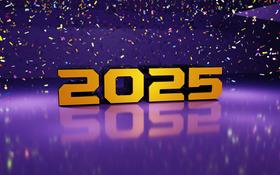For the 2025-26 school year, there are 7 public schools serving 2,386 students in Brighton, MA (there are 6 private schools, serving 654 private students). 78% of all K-12 students in Brighton, MA are educated in public schools (compared to the MA state average of 88%).
The top ranked public schools in Brighton, MA are Winship Elementary School, Lyon K-8 School and Lyon High School. Overall testing rank is based on a school's combined math and reading proficiency test score ranking.
Brighton, MA public schools have an average math proficiency score of 21% (versus the Massachusetts public school average of 43%), and reading proficiency score of 25% (versus the 45% statewide average). Schools in Brighton have an average ranking of 1/10, which is in the bottom 50% of Massachusetts public schools.
Minority enrollment is 87% of the student body (majority Hispanic), which is more than the Massachusetts public school average of 47% (majority Hispanic).
Best Public Schools in Brighton, MA (2025-26)
School
(Math and Reading Proficiency)
(Math and Reading Proficiency)
Location
Quick Facts
Rank: #11.
Winship Elementary School
(Math: 45-49% | Reading: 45-49%)
Rank:
Rank:
6/
Top 50%10
54 Dighton Street
Brighton, MA 02135
(617) 635-8399
Brighton, MA 02135
(617) 635-8399
Gr: PK-6 | 345 students Student-teacher ratio: 13:1 Minority enrollment: 71%
Rank: #22.
Lyon K-8 School
(Math: 25-29% | Reading: 25-29%)
Rank:
Rank:
3/
Bottom 50%10
50 Beechcroft Street
Brighton, MA 02135
(617) 635-7945
Brighton, MA 02135
(617) 635-7945
Gr: K-8 | 120 students Student-teacher ratio: 6:1 Minority enrollment: 82%
Rank: #33.
Lyon High School
(Math: 21-39% | Reading: 20-29%)
Rank:
Rank:
3/
Bottom 50%10
95 Beechcroft Street
Brighton, MA 02135
(617) 635-8351
Brighton, MA 02135
(617) 635-8351
Gr: 9-12 | 102 students Student-teacher ratio: 6:1 Minority enrollment: 86%
Rank: #44.
Edison K-8 School
(Math: 20% | Reading: 22%)
Rank:
Rank:
2/
Bottom 50%10
60 Glenmont Road
Brighton, MA 02135
(617) 635-8436
Brighton, MA 02135
(617) 635-8436
Gr: PK-8 | 584 students Student-teacher ratio: 9:1 Minority enrollment: 86%
Rank: #55.
Boston Green Academy Horace Mann Charter School
Charter School
(Math: 9% | Reading: 21%)
Rank:
Rank:
1/
Bottom 50%10
20 Warren St.
Brighton, MA 02135
(617) 635-9860
Brighton, MA 02135
(617) 635-9860
Gr: 6-12 | 459 students Student-teacher ratio: 11:1 Minority enrollment: 92%
Rank: #66.
Brighton High School
(Math: ≤5% | Reading: 11-19%)
Rank:
Rank:
1/
Bottom 50%10
25 Warren Street
Brighton, MA 02135
(617) 635-9873
Brighton, MA 02135
(617) 635-9873
Gr: 7-12 | 584 students Student-teacher ratio: 9:1 Minority enrollment: 95%
Rank: n/an/a
121 Corey Road
Brighton, MA 02135
(617) 635-8409
Brighton, MA 02135
(617) 635-8409
Gr: PK-1 | 192 students Student-teacher ratio: 13:1 Minority enrollment: 84%
Brighton, Massachusetts Public Schools (Closed)
School
Location
Quick Facts
198 Strathmore Road
Brighton, MA 02135
(617) 635-8388
Brighton, MA 02135
(617) 635-8388
Gr: K-5 | 185 students Student-teacher ratio: 11:1 Minority enrollment: 77%
20 Warren Street
Brighton, MA 02135
(617) 635-8428
Brighton, MA 02135
(617) 635-8428
Gr: 8 | 135 students Minority enrollment: 88%
Frequently Asked Questions
What are the top ranked public schools in Brighton, MA?
The top ranked public schools in Brighton, MA include Winship Elementary School, Lyon K-8 School and Lyon High School.
How many public schools are located in Brighton?
7 public schools are located in Brighton.
What percentage of students in Brighton go to public school?
78% of all K-12 students in Brighton are educated in public schools (compared to the MA state average of 88%).
What is the racial composition of students in Brighton?
Brighton public schools minority enrollment is 87% of the student body (majority Hispanic), which is more than the Massachusetts public schools average of 47% (majority Hispanic).
Which public schools in Brighton are often viewed compared to one another?
Popular comparisons of public schools in Brighton include: Edison K-8 School vs. Winship Elementary School, Winship Elementary School vs. Edison K-8 School, Edison K-8 School vs. Lyon K-8 School
Recent Articles

Texas Schools Enrollment Trends & Policy in 2025
Latest data and policy changes on Texas public school enrollment growth, funding, and virtual education in 2025.

Financial Aid & Hidden Costs in Public Schools
Learn about financial aid and hidden costs in public schools. Discover what parents should budget for beyond tuition-free education.

NYC Schools Still Most Segregated in 2025
Despite reforms, New York City schools remain the most segregated in the U.S. in 2025. Here’s what parents and educators need to know.
